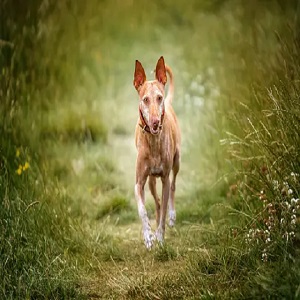Introduction Of Hound Dog Breeds

Hound dog breeds have an illustrious history that spans thousands of years, captivating dog lovers with their unique qualities and striking appearance. These breeds have played a crucial role in human society, originally developed for their exceptional hunting abilities. Hounds are renowned for their keen senses, whether it’s the Sighthounds’ lightning-fast speed or the Scenthounds’ unparalleled tracking skills.
Throughout history, hound dogs have evolved into distinct groups, each with its own set of characteristics and charm. From the elegant Greyhound to the inquisitive Beagle, each hound breed brings something special to the table.
In this introduction, we embark on a journey to explore the world of hound dog breeds. We’ll delve into their fascinating family tree, uncover their exercise needs and grooming requirements, and highlight their role as cherished family companions. Get ready to discover the enchanting world of hound dogs and the joy they bring to our lives.
A Brief History of Hound Dogs
Hound dogs have a rich history dating back thousands of years. These breeds were initially developed for hunting purposes, assisting humans in tracking and capturing game. Over time, they have evolved into diverse groups with unique traits and abilities.
The Hound Dog Family Tree

Hound dogs can be broadly categorized into two main groups: Sighthounds and Scenthounds. Each group possesses distinctive qualities that set them apart.
How Smart Are Corgis? 7 Useful Points We Know About Their Intelligence
Sighthounds
1. Greyhound: The “cheetah of the dog world,” known for their lightning-fast speed.
2. Whippet: A smaller version of the Greyhound, prized for their agility and grace.
3. Afghan Hound: Elegance personified, with a regal appearance and silky coat.
4. Saluki: A breed with deep roots in ancient history, characterized by their royal demeanor.
Scenthounds
1. Beagle: Friendly and curious, with an exceptional sense of smell.
2. Bloodhound: Famous for their unparalleled tracking abilities, often used in search and rescue missions.
3. Basset Hound: Short legs, long ears, and a keen nose make them excellent scent trackers.
4. Coonhound: Known for treeing raccoons and their loyalty to their owners.
The Hound Dog Lifestyle

Hound dogs have specific needs and characteristics that every owner should be aware of.
Exercise Requirements
1. Regular Runs: Sighthounds thrive on sprinting, while Scenthounds benefit from long walks.
2. Mental Stimulation: Puzzle toys and scent games keep their minds active.
Grooming
1. Coat Care: Afghan Hounds and Salukis require regular grooming, while Beagles and Basset Hounds have lower maintenance coats.
2. Ear Cleaning: Hounds with long ears like Basset Hounds need extra care to prevent infections.
Socialization
1. Friendly Nature: Hounds are generally sociable, making them great family pets.
2. Early Training: Obedience training is crucial to manage their strong hunting instincts.
12 Amazing Facts: Black Palm Cockatoo
Hound Dogs as Family Companions

These breeds are not just skilled hunters; they are also wonderful family pets.
Bonding with Children
1. Gentle Giants: Most hounds are patient and tolerant of children.
2. Supervision: Always supervise interactions between hounds and young kids to ensure safety.
Hound Dog Myths
1. Dumb Dogs: Hounds are often misunderstood as being unintelligent, but they are actually quite clever.
2. Non-Affectionate: Contrary to popular belief, hounds can be affectionate and loyal to their owners.
Conclusion
In conclusion, hound dog breeds offer a unique blend of history, charm, and companionship. Whether you’re looking for a swift Sighthound or a skilled Scenthound, there’s a hound breed that could be the perfect fit for your lifestyle. The key is to understand their specific needs and provide them with the love and care they deserve.
FAQs About Hound Dog Breeds
Are hound dogs good for first-time dog owners?
Hound dogs can be suitable for first-time owners, but they require consistent training and exercise.
Do hounds get along with other pets?
Many hounds coexist well with other pets, but early socialization is essential.
What is the lifespan of hound dog breeds?
The lifespan varies by breed, but most hounds live for about 10 to 14 years.
Are hounds prone to health issues?
Some hounds are prone to specific health issues, so regular vet check-ups are crucial.
Can hound dogs be kept in apartments?
While some hounds can adapt to apartment living, they generally thrive in homes with yards for exercise.


